Because cognitive decline is a natural part of the aging process, there’s a lot of benefit to cognitive stimulation activities for elders. Previously, we covered mind stimulating games and puzzles like crossword puzzles, jigsaw puzzles, card games, and other games for seniors. But this time, we’d like to focus more on mental exercises and activities that can help older people retain as much cognitive function as possible.
First, however, we’d like to talk about why keeping the mind active is so important as individuals age.
Contents
Why Are Cognitive Stimulation Activities for Elders Important?

Losing some of our powers is a normal part of aging. Movement often becomes harder, bodies become more prone to injury, and minds can lose a certain level of cognitive function. That’s the bad news. The good news is that we can all participate in activities to retain as much cognitive power as possible.
As people age, memory loss is perhaps the most common complaint. This level of cognitive decline should not be confused for dementia or any other medical condition; it often just means forgetting little things, like where you left your keys or what you wanted to buy from the store. Understandably, many older adults find this loss of power frustrating. That’s where cognitive stimulation activities come in.
By keeping your brain trained and active, you can lessen age-related cognitive decline. And that can give you a much higher quality of life, since improved cognitive function means an improved ability to remain independent without transitioning to assisted living or another level of care. For this reason, just as elders should keep a close eye on physical health, mental health can be just as important as you age.
There is one caveat with these exercises, however: There is no guarantee that they can stop dementia or Alzheimer’s. Because these are distinct medical conditions and not normal age-related decline, retaining cognitive skills may not stop these issues. While there is some preliminary evidence that these activities can delay the onset of dementia, this has not been proven. Instead, individuals in the early stages of dementia should consider professional care to treat and slow the progression of their symptoms.
But, for elders facing natural age-related cognitive decline, these activities are great for keeping the brain active. Let’s take a look at your options.
1. Read to Keep Your Mind Active
Reading is one of the simplest and easiest ways to keep your mind active and healthy with age. The best part? You can read about whatever you want. Whether that’s history, science fiction, philosophy, fantasy, or anything else, the most important thing is that you read and read often. The younger you start, the better, since lifelong reading can be especially effective in slowing cognitive decline.
While all subjects are on the table, you should try to stick to reading things that you personally find challenging. That doesn’t mean that you have to read dry, stuffy subjects at academic reading levels; just pick things that keep your mind actively engaged and focused. If you’re able to lose yourself in the reading experience, that’s a good indicator that your mind is getting a workout.
2. Learn a New Language

Learning a new language is often thought of as something that’s simply too hard, but it’s something that most people can accomplish. In fact, globally, well over half of all people in the world speak more than one language. If they can do it, then isn’t it worth trying?
In addition to being handy while traveling, learning a second language offers a wide variety of cognitive benefits. Evidence suggests that learning a language can change the structure of your brain and improve its efficiency at any age. But speaking a new language can have especially important effects as people grow older.
Several studies have shown that older adults who know a second language can greatly slow age-related cognitive decline. In fact, even attempting to learn a language can help. In one study, participants had better cognitive function outcomes after just one week of learning a language. So with all of the free language programs out there, this is one of the best cognitive stimulation activities for elders.
3. Play Chess to Develop Problem-Solving Skills
Chess isn’t as popular as it once was, but the rules are easy to access and simple to learn. And because chess requires rational thinking and problem-solving skills, it’s a great activity to train your brain. The ability to problem solve is distinctly affected by age-related cognitive decline, and chess is an effective way to slow down that issue.
There is another benefit to playing chess, though. Because chess requires another person to play, it’s a great way to socialize while participating in a cognitive stimulation activity for elders. And social interaction can play a big role in memory and other cognitive functions; put simply, elders with active social lives are at a much lower risk of early age-related cognitive decline.
Many senior centers and libraries have chess tables set up, so try something new and see who you meet. You’ll get to have fun, meet some new people, and play a game all while training your brain and staying active.
Slowing Age-Related Decline Is Possible
If you’ve already tried the brain teaser games and puzzles, now is the time to try these cognitive stimulation activities for elders. Your mind is an incredible, valuable thing, and we want to help you protect it. Whether that means training your brain, helping with mental health issues, or assisting in addiction recovery, we are committed to helping elders in our community.
Would you like to learn more about how we can help? Give us a call at (772) 335-0400 or fill out our digital contact form. Aging isn’t always fun, but we’re here to help you navigate these issues and help you stay in control of your life.


























